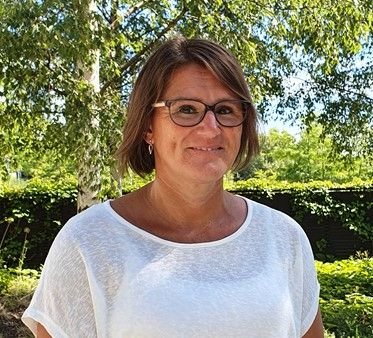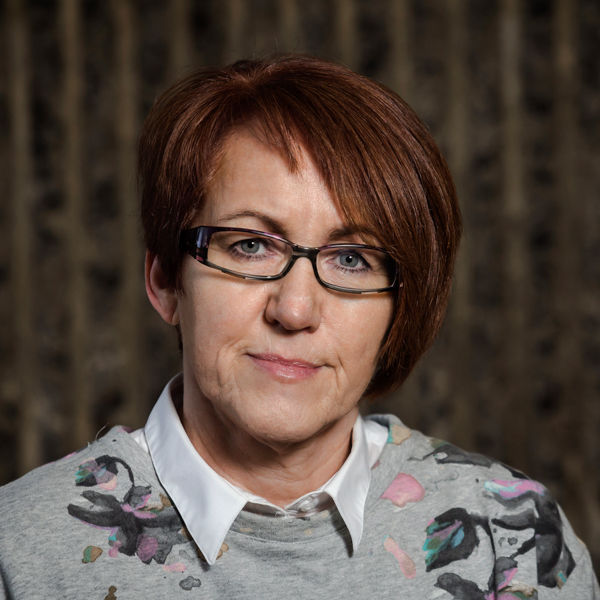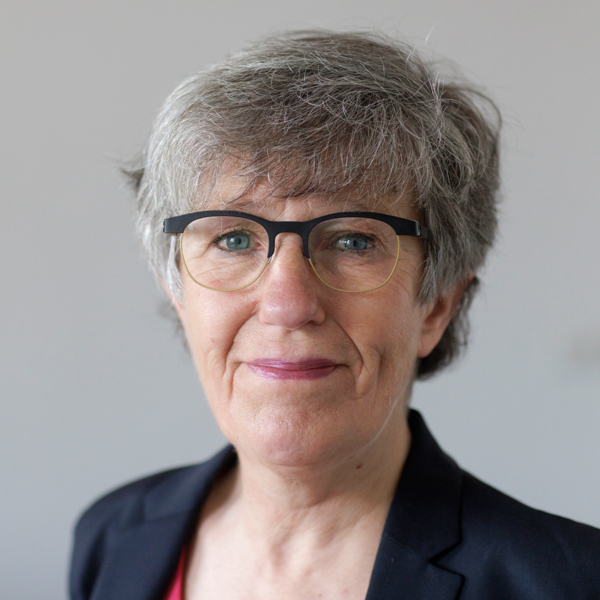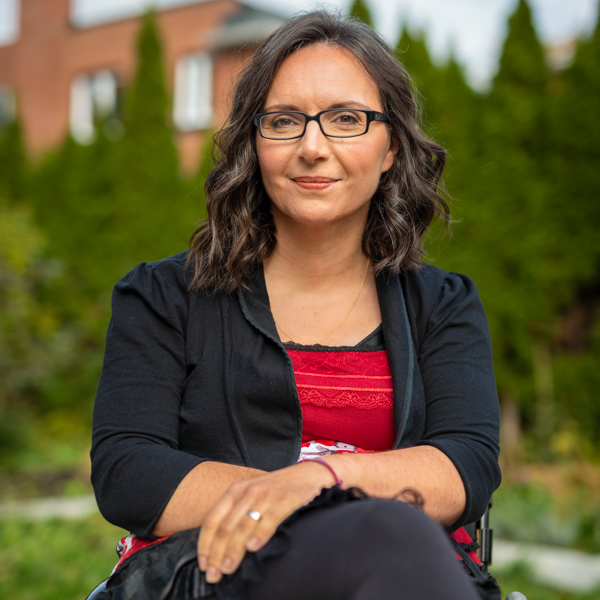Keynotes
Keynotes

Ingela Holmström
Ingela Holmström
Ingela Holmström is an Associate professor and vice-head of the Department of Linguistics, Stockholm University, Sweden. She has a Ph.D. in Education from Örebro University in 2013 and her research is directed toward communication issues in the interaction between deaf, hard-of-hearing, and hearing people both in and outside school contexts. She has a special interest in multilingualism and is the PI for an ongoing 4-year-long project funded by the Swedish Research Council on deaf migrants’ multilingual situation. Holmström has also worked on a number of other research projects with a range of topics, such as second language teaching of sign language and deaf children’s bilingualism.
Cripping the norm
In all societies, there are norms that are so deeply ingrained that people hardly notice them. They encompass things like how we dress, eat, and behave. Within these societies, there is also an expectation of what an able-bodied person should be like – a model for how people should be. Those who deviate from this norm are seen as "deviant." This often leads to a desire to "fix" what is perceived as "broken" so that the “deviant” can conform to the norm. Traditional disability research has generally taken the medical perspective, viewing deafness as an ailment in need of cure or correction. In contrast, contemporary Disability Studies focuses on the experiences of disabled people themselves, considering their challenges, obstacles, strengths, and successes from various perspectives such as education, psychology, sociology, and history. Deaf Studies also takes this approach but with a focus on deaf people as well as linguistics as an additional perspective. It is often noted that deaf people have a dual status as disabled and as members of a linguistic minority. However, in this presentation, we shift the focus away from studying deaf and other disabled individuals, and instead, we question the invisible norms that shape our society and how these place the responsibility for participation on those considered “deviant”. This presentation thus uses a Crip Theoretical perspective.

Rannveig Traustadóttir
Rannveig Traustadóttir
Rannveig Traustadóttir is Professor Emerita and Director of the Centre for Disability Studies, School of Social Sciences, University of Iceland. With a background in sociology and philosophy from the University of Iceland, she embarked on doctoral studies at Syracuse University and completed a PhD degree in Disability Studies and Gender Studies in 1992. Much of her academic career has focused on examining the intersection of disability, gender, and other aspects of inequalities.
Her recent research has regarded violence against disabled women, reproductive rights, independent living and personal assistance, and the UN Convention on the Rights of Persons with Disabilities and its importance in promoting human rights and equality for disabled people. Rannveig has published thirteen books and numerous scholarly articles and received many awards for her academic work as well as for her activism and advocacy for human rights. Rannveig was a founding member of NNDR, the Nordic Network on Disability Research, in 1997, and served as its President for many years. She has also been instrumental in developing Disability Studies as an academic field in the Nordic countries.
Recently her attention has turned towards analysing the history of ideas on disability and the way in which they have informed the development of disability policy, practice, services, and the everyday lives of disabled people. In addition to her academic work Rannveig has been an active advocate for human rights, in particular disability human rights, and her passion is combining activism and academia in bringing about social change and social justice.
From Asylums to Human Rights: Personal Reflections on 50 Years of Disability History
Rannveig Traustadóttir, Professor Emerita
University of Iceland, Reykjavík, Iceland
The past half a century has seen profound changes in the lives of disabled people. Although uneven across the globe, these changes have brought about significant improvements for many of the 1.3 billion disabled persons in the world. This talk reflects my long term interest in this historical development and questions such as: How did the field of disability reach the current emphasis on human rights? What were the driving forces? Who were the leaders paving the way out of the asylums and into a UN treaty promising equal rights to all? What visions, ideas and policies helped these changes to materialise? I will seek some of the answers to these question with the aim to honour and pay gratitude to the predecessors who built the foundations for today´s accomplishments and visions. My quest begins in the 1960s. Those were dark times for disabled people when segregation and incarceration in institutions, nursing homes and mental hospitals peaked. Yet, the 1960s also brought about hope and actions for change. These were times of political turmoil, uprising against oppression and the rise of the civil rights movements, including the disability rights movement. My own history in the field of disability also began in the 1960s, with a summer job in Iceland’s largest state institution. Thus, in exploring the main trends, ideas, policies and milestones of more than 50 years of disability history, I include my personal reflections of taking part in these historically remarkable times.

Theresia Degener
Theresia Degener
Theresia Degener is professor of law and disability studies at Protestant University of Applied Sciences in Bochum, Germany and Visiting Professor at the Faculty of Law, University of Maastricht, Netherlands.
She is the director of the Bochum Centre for Disability Studies BODYS. From 2011 to 2018 she was a member (and for the last 2 years the Chair) of the United Nations Committee on the Rights of Persons with Disabilities.
She co-authored the background study of the Convention on the Rights of Persons with Disabilities: Quinn / Degener (2002) Human rights and disability: The current use and future potential of United Nations human rights instruments in the context of disability, OHCHR, United Nations and has participated in drafting the CRPD.
Her research fields are anti-discrimination law, human rights, disability studies and gender studies.
www.bodys-wissen.de
The human rights model of disability in times of emergency
Theresia Degener, Professor
Bochum Center for Disability Studies, Bochum, Germany
The presentation will address the meaning and impact of the 2006 Convention on the Rights of Persons with Disabilities in times of emergency. It will outline the normative framework of the CRPD for state responses to the Covid 19 pandemic. Based on a case study on the German triage law, adopted on 8 December 2022 the human rights model of disability will be revisited.
On 8th December 2022 the German parliament adopted a triage law which regulates the procedure to be followed in German hospitals in case of shortage of medical resources due to the Corona pandemic which leads to the question of ‘whose life to save’. It was caused by a judgement of the Federal Constitutional Court of Germany declaring, that triage in Germany needs to be regulated by a formal legislative act. Nine disabled activists had filed a constitutional complaint against earlier recommendations of German medical associations arguing they discriminate against disabled people. The now adopted triage law entails a non-discrimination provision related to disability, the degree of frailty, age, ethnic origin, religion or belief, gender or sexual orientation. Triage decisions may only be made on the basis of the current and short-term likelihood of survival of the patients concerned. Despite this non-discrimination provision, the German triage law discriminates against disabled and elderly patients because it does not protect against indirect and structural discrimination in the German health care system as it relates to pandemic situations. It is based on the medical model of disability and devalues the human rights model of disability.

Marjorie Aunos
Marjorie Aunos
Marjorie Aunos is a psychologist and researcher from Montreal, Canada. She is the Chair of IASSIDD Parents and Parenting with Intellectual and Developmental Disabilities Special Interest Research Group. All her academic career has focused on working with and empowering parents with an intellectual disability, notably in identifying the impact of life circumstances and parental health on parenting style and children’s health and development. She worked as a clinical psychologist for several decades and created a parenting support program for families headed by parents with intellectual and developmental disabilities.
In 2012, while at the peak of her career in Parenting and Disability, she sustained a Spinal Cord Injury in a car accident. Mother to a 16-months old at the time, the accident and subsequent injury gave her a different and interesting perspective on parenting. Her research interests now include disabled parenting across disabilities, and intimate partner violence. She strives to be a strong advocate, and aims at conducting research projects that have at least some impact on clinical services and policies
Unpacking the Invisible Bias: How Ableism impacts the study of parenting and disabled parenting
Marjorie Aunos, psychologist and researcher
Montreal, Canada
Decades of studies in parenting have led to one conclusion everyone seems to agree on: parenting is one of the most complex and difficult role(s) a person can take on. This realisation is rooted in how we perceive and conceptualise parenting in our western culture: as a role that mostly is done independently and that requires physical agility and psychological and emotional stability. It is this biaised conceptualisation that will make many of us doubt the parenting capacity of disabled persons, leading to an over-representation of disabled parents in the Child Welfare System, sometimes even despite having evidence based on facts. At the least, many will think: if abled-body-and-mind persons find parenting challenging, surely disabled persons will struggle even more.
I have been a strong advocate for parents with intellectual disabilities and their families for close to 15 years when I became disabled and sustained a Spinal Cord Injury in a car accident. My son was 16 months old and I am his only parent. It is through the lens of my own lived experience as a single disabled mom that I gained a different perspective on parenting, that in turn made me a better disability and parenting scholar.
This keynote will be centered on how I wrestled with my own ableist constructs and how this impacted my parenting experience as a newly disabled mom. I will also argue that parenting can only be understood accurately (1) by including the perceptions of disabled parents of diverse origins and backgrounds, (2) by incorporating the notions of mutual adaptation between children and parents and (3) by considering the future needs and skills children will require to navigate the complexities of Society. Disability not only makes us good parents, but actually makes us great parents.
